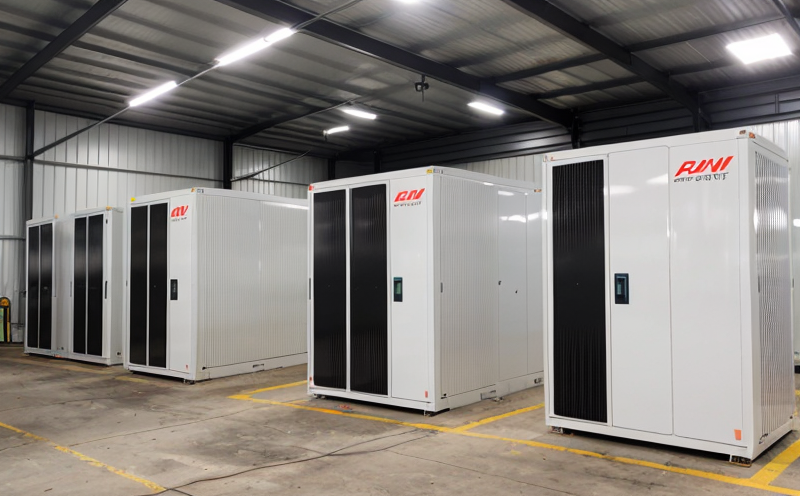IEC 62660-1 Performance Testing of Lithium-Ion Batteries for EVs
The IEC 62660-1 standard is an internationally recognized protocol that ensures the performance, safety, and reliability of lithium-ion batteries designed for electric vehicles (EVs). This standard provides a comprehensive framework to test the capacity, durability, and consistency of these batteries under various operational conditions. Compliance with this standard is crucial for manufacturers aiming to meet global regulatory requirements and ensure high-quality battery performance.
During testing according to IEC 62660-1, lithium-ion batteries are subjected to a series of rigorous tests that simulate real-world driving scenarios. These tests include deep discharge cycling, charge/discharge profiles, temperature cycling, and accelerated life testing. By performing these tests, manufacturers can identify potential weaknesses in their battery designs and make necessary improvements before product release.
One of the key aspects of IEC 62660-1 is its emphasis on consistency across different batches of batteries from the same production line. This ensures that each batch meets the required performance standards, which is essential for maintaining quality control in mass-produced EVs. The standard also covers safety features such as overcharge protection and thermal management systems to ensure the safe operation of batteries.
The testing process involves meticulous preparation of the battery specimens according to strict guidelines outlined in IEC 62660-1. Specimens are then subjected to a range of conditions that simulate typical usage patterns, including high and low temperatures, varying charge levels, and rapid charging/discharging cycles.
Advanced instrumentation plays a crucial role in accurately measuring the performance metrics specified by IEC 62660-1. This includes monitoring voltage, current, temperature, and internal resistance over time. The collected data is analyzed to evaluate whether the battery meets all performance criteria set forth by the standard.
Testing according to IEC 62660-1 helps manufacturers demonstrate compliance with international regulations, which in turn builds trust among consumers and regulators. It also aids in improving product design through continuous testing and refinement based on feedback from rigorous evaluation processes.
| Parameter | Description |
|---|---|
| Deep Discharge Cycling | Cycling the battery through multiple full charge and discharge cycles under specified conditions. |
| Charge/Discharge Profiles | Simulating actual charging patterns seen in EV usage scenarios. |
| Temperature Cycling | Subjecting the battery to extreme temperature changes to assess its durability and reliability. |
| Accelerated Life Testing | Evaluating how long a battery can operate effectively under accelerated stress conditions. |
Scope and Methodology
- Deep Discharge Cycling: Batteries are repeatedly charged to full capacity, then fully discharged. This tests the battery's ability to retain its charge over multiple cycles.
- Charge/Discharge Profiles: Simulated charging and discharging patterns that mimic typical use in EVs.
- Temperature Cycling: Exposure of batteries to extreme temperatures within a controlled environment to assess their performance under these conditions.
- Accelerated Life Testing: Batteries are tested at higher than normal operating conditions to predict long-term performance and lifespan.
Why Choose This Test
Choosing IEC 62660-1 testing offers several advantages for manufacturers of lithium-ion batteries for electric vehicles:
- Global Recognition: Compliance with this standard ensures your product meets international quality standards.
- Rigorous Testing: The comprehensive nature of the tests provides thorough evaluation of battery performance, safety, and durability.
- Regulatory Compliance: Meeting IEC 62660-1 helps ensure compliance with global regulations governing EV batteries.
- Innovation Facilitation: Continuous testing leads to improvements in design and manufacturing processes.
International Acceptance and Recognition
The IEC 62660-1 standard has gained widespread acceptance among regulatory bodies and industry experts worldwide. Its rigorous testing protocols ensure that batteries meet high standards of performance, safety, and reliability, which is critical for the success of electric vehicle manufacturers.
Compliance with this standard not only enhances a manufacturer's reputation but also fosters consumer confidence by demonstrating commitment to quality and safety. As more regions adopt stringent regulations regarding EV battery performance, adherence to IEC 62660-1 becomes increasingly important for market success.





